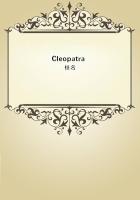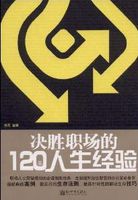Their conversation was interrupted by the ringing of a little bell, and the doleful supplications of a priest followed by a crowd of idle men and women. He was begging, "for the sake of the Holy Virgin," alms to say masses for the soul of an unfortunate, who had not left a peso for his burial. He droned on, and no one noticed him until James Bowie stretched his tall figure, sauntered up to the monk and dropped a gold piece into his cap. He did not stay to hear the exclamations and the gracias, but with steps that rang like metal upon metal took his way to the Alamo.
However, dangers postponed make the most timorous indifferent to them; and when General Cos did not return, and nothing was heard of Santa Anna, every one began to take up their ordinary life again. The temper of the Americans also encouraged this disposition. They were discovered neither to be bloodthirsty nor cannibals. It was even seen that they enjoyed the fandango and the monte tables, and that a proposition for a bullfight at Christmas was not opposed by them.
And in spite of all anxieties, there were many sweet and unusual pleasures in the Worth home. The discipline of the troops was so lenient that Dare and Luis--one or both--were generally there in the evenings. Their turns as scouts or watchman at the Alamo only made more delightful the hours when they were exempted from these duties. As for the doctor, he had been released from all obligations but those pertaining to his profession, and Antonia, noticed that he spent every hour he could spare with the Senora. For some reason, he appeared determined to strengthen his influence over her.
On Christmas Eve the old city was very gay. The churches were decorated, and splendidly dressed men and women passed in and out with smiles and congratulations. The fandangoes and the gambling houses were all open. From the huertas around, great numbers of families had come to receive absolution and keep the Nativity. Their rich clothing and air of idleness gave a holiday feeling to the streets noisy with the buzzing of the guitar, the metallic throb of the cithara, the murmurs of voices, and the cries of the hawkers. Priests, Mexicans, Indians and Americans touched each other on the narrow thoroughfares, but that indescribable feeling of good will which comes with Christmas pervaded the atmosphere, and gave, even in the midst of war and danger, a sense of anticipated pleasure.
At the Worth residence there was a household feast. The Senora and her daughters were in full dress. They were waiting for the dear ones who had promised to join them at the Angelus. One by one the houses around were illuminated.
Parties of ****** musicians began to pass each other continually--they were going to serenade the blessed Mary all night long. As Antonia closed the balcony window, half a dozen of these young boys passed the garden hedge singing to the clacking of their castanets--"This is the eve of Christmas, No sleep from night to morn, The Virgin is in travail, At twelve will the Child be born."
Luis appeared at the same moment. He caught up the wild melody and came up the garden path singing it. Dare and the doctor followed him. It struck Antonia that they were talking of a change, or of something important. But there was no time for observation. Isabel, radiant in crimson satin, with her white mantilla over her head, darted forward to meet Luis, and turned his song to the Virgin into a little adulation for herself. Dare and the doctor took Antonia's hands, and there was something in the silent clasp of each which made her heart tremble.
But she was not one of those foolish women who enquire after misfortune. She could wait and let the evil news find her, and by so doing she won many a bright hour from the advancing shadows. The Senora was in unusual spirits. She had obtained a new confessor. "A man of the most seraphic mind, and, moreover, so fortunate as to be connected with the house of Flores." He had been gentle to her in the matter of penances, and not set her religious obligations above her capacities.
Consequently, the Senora had laid aside her penitential garments. She was in full Castilian costume, and looked very handsome. But Antonia, who had been in New York during those years when she would otherwise have been learning how to wear a mantilla and use a fan, did not attempt such difficulties of the toilet. She knew that she would look unnatural in them, and she adhered to the American fashions of her day. But in a plain frock of dark satin trimmed with minever bands, she looked exceedingly noble and lovely.
The meal was a very merry one, and after it Lopez Navarro joined the party and they had music and dancing, and finally gathered around the fire to hear the singing of Luis. He knew a great many of the serenades, and as he sang of the Virgin and the Babe, a sweeter peace, a more solemn joy, came to each heart. It was like bringing something of the bliss of heaven into the bliss of earth. The Senora's eyes were full of tears; she slipped her hand into her husband's and looked at him with a face which asked, "Do you not also feel the eternity of a true love?"
"How sweet and wild are these serenades, Luis! said Antonia.
"I wonder who wrote them?"
"But, then, they were never written, my sister. Out of the hearts of lonely shepherds they came; or of women spinning in their quiet houses; yes, even of soldiers in the strong places keeping their watch."
"That is the truth, Luis," answered Isabel. "And every Christmas, when I was in the convent the Sisters made a serenade to the Virgin, or a seguidilla to our blessed Lord.
Very still are the Sisters, but when it comes to singing, I can assure you the angels might listen!"
"There is a seguidilla I hear everywhere," said the doctor;
"and I never hear it without feeling the better for listening.
It begins--`So noble a Lord.'"
"That, indeed!" cried Luis. "Who knows it not? It is the seguidilla to our blessed Lord, written by the daughter of Lope de Vega--the holy Marcela Carpio. You know it, Senora?"















